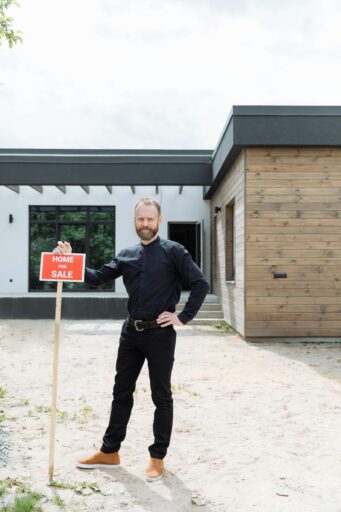Foreigners have long been able to purchase property in South Korea, but new restrictions introduced in 2024–2025 have placed tighter limits on ownership in certain regions.
While it is still possible to buy, foreigners now face closer scrutiny, higher taxes in some cases, and restrictions in strategic areas.
This article explores:
- How can foreigners buy property in South Korea?
- Can foreigners get a housing loan in Korea?
- What are the requirements in buying property in South Korea as a foreigner?
- Is property expensive in South Korea?
My contact details are hello@adamfayed.com and WhatsApp +44-7393-450-837 if you have any questions.
The information in this article is for general guidance only. It does not constitute financial, legal, or tax advice, and is not a recommendation or solicitation to invest. Some facts may have changed since the time of writing.

Can foreigners buy property in South Korea?
Yes, foreigners can legally buy property in South Korea under the Foreigner’s Land Acquisition Act (FLAA) and the Real Estate Registration Act. However, restrictions now apply in designated zones.
Recently, the government passed measures limiting foreign purchases in areas near military bases, coastal regions, and certain housing markets facing affordability issues for locals.
Outside these restricted zones, foreigners may still buy apartments, houses, or commercial real estate, provided they follow the same legal framework and registration process as locals.
Is it hard to own a home in Korea as a foreigner?
It is not legally difficult to own a home, but the process can be administratively complex.
Foreign buyers must file a Report of Real Estate Acquisition within 60 days of purchase and, in some cases, obtain prior approval if buying in restricted areas.
Financing is also a challenge, as South Korean banks impose stricter conditions or higher down payments for foreign borrowers.
New restrictions on foreigners buying property in Korea
Effective August 21, 2025, South Korea introduced new rules limiting foreign property purchases in the Seoul Metropolitan Area.
Foreign buyers must now obtain government approval before acquiring homes in Seoul, 23 cities and counties in Gyeonggi Province, and seven districts in Incheon.
Once approved, they are required to move into the property within four months and maintain residency for at least two years.
Failure to comply can result in fines of up to 10% of the property’s value or even nullification of the purchase contract.
The policy aims to curb speculative buying, which had surged in recent years as foreigners used overseas financing to bypass strict mortgage caps applied to local buyers.
Luxury apartments in districts like Gangnam and Hannam have seen record-breaking sales by foreign nationals, driving up market prices.
Authorities have also pledged tighter monitoring of funding sources and property manager arrangements, with Chinese and American buyers accounting for the majority of foreign-owned properties.
For now, the restrictions are designated for a one-year trial period through August 2026, after which the government will decide whether to extend or adjust the policy based on market impact.
How to invest in South Korea as a foreigner
Foreigners can invest in South Korea through both direct property purchases and indirect financial vehicles, but the process involves meeting regulatory and reporting requirements.

- Direct purchase of property – Foreigners may buy residential apartments, houses, or commercial real estate, provided they report the acquisition within 60 days under the Real Estate Transaction Act. Transactions must be made in Korean won, though funds can be converted through authorized banks.
- Business or development investment – Through the Foreign Investment Promotion Act (FIPA), foreigners can invest in large-scale projects or companies by establishing a local subsidiary, joint venture, or injecting capital into existing businesses. This pathway is also tied to eligibility for certain visas, such as the D-8 Investor Visa.
- Indirect investment via financial markets – Non-residents can participate in Real Estate Investment Trusts (REITs) or property funds traded on the Korea Exchange (KRX), offering exposure to Korea’s property market without direct ownership.
In practice, investing as a foreigner requires working with local real estate agents, banks, or licensed investment firms to ensure compliance with reporting rules and, in some cases, obtaining prior approvals for restricted zones or strategic properties.
Is there property tax in South Korea?
Yes, South Korea imposes several property-related taxes:
- Acquisition Tax – 1–4% of the property price when purchasing.
- Registration Tax – Paid during the transfer of ownership.
- Property Holding Tax (Comprehensive Real Estate Holding Tax) – Applied annually for high-value property, ranging from 0.5% to 5%.
- Capital Gains Tax – Charged when selling property, with foreigners often taxed at a flat rate of 22%.
Can foreigners get a mortgage in Korea?
Yes, foreigners can apply for mortgages in South Korea, but approval is more restrictive compared to locals.
Most banks require:
- Stable visa status or long-term residency (E-7, F-2, F-5 visas are more favorable).
- Higher down payments, often 30–50% of the property value.
- Proof of income in Korea, such as employment or business earnings.
Foreign investors without local income or residency may struggle to secure financing, and many instead purchase property outright with cash or through financing in their home country.
Is property cheap in South Korea?
No. Property in South Korea is not cheap compared to many other Asian countries. Seoul ranks among the world’s most expensive housing markets, with high demand and limited supply pushing up prices.
However, smaller cities such as Daegu, Gwangju, and Daejeon offer more affordable housing options, making them attractive to foreign buyers seeking lower entry costs.
How much does it cost to buy a house in South Korea?
As of 2025, buying a house in South Korea typically costs between ₩200 million in smaller cities and over ₩1.3 billion in Seoul’s prime districts.
- Seoul: As of mid-2025, the average apartment price in Seoul stands at approximately ₩1.3 billion (around USD 913,000), with prime districts like Gangnam charging between ₩25–40 million per square meter for luxury properties.
- Busan: Apartment prices are considerably more modest. As of September 2025, the average is about ₩6.69 million per square meter (roughly USD 4,630/m²). For an 84 m² apartment (around 25.5 pyeong), that equates to a buying price of approximately ₩422–500 million (USD 295,000–350,000)
- Smaller Cities (e.g., Daegu, Incheon, regional towns): Prices drop even further—averaging between ₩3 to 6 million per square meter (around USD 2,100–4,600/m²). This generally translates to total purchase prices in the ₩200–300 million range (USD 140,000–220,000) for modest-sized homes.
How much is a 3 bedroom house in Korea?
In Seoul, mid-tier areas typically range from ₩800 million to ₩1.2 billion (USD 600,000–890,000), while prime districts like Gangnam or Yongsan often exceed ₩1.3 billion and can reach over ₩3 billion in luxury zones.
In contrast, suburban areas in Gyeonggi Province range from ₩500 million to ₩1 billion, Busan averages ₩700 million to ₩1.5 billion in prime areas, and other major cities like Daegu or Gwangju offer more affordable options at ₩300–600 million.
Requirements in buying property in South Korea
To purchase property, foreigners must comply with these requirements:
- Valid identification – A passport or visa is required, though permanent residency is not necessary.
- Acquisition report – A Report of Real Estate Acquisition must be filed with the local government office within 60 days of signing the contract.
- Special permissions – Properties in restricted or strategic zones (e.g., military bases, coastal land, or areas under affordability controls) require prior government approval.
- Tax compliance – Buyers must register with the local tax office and will be subject to property-related taxes such as acquisition tax, property tax, and capital gains tax upon resale.
- Payment rules – Transactions must be settled in Korean won, but funds may be legally remitted and converted from foreign currency through licensed South Korean banks.
- Registration – The property must be recorded with the local registry office to finalize ownership rights.
- Residency obligation (as of mid-2025) – In designated zones (e.g., Seoul, Gyeonggi, Incheon), foreign buyers are required to occupy the property within four months and maintain continuous residency for two years.
Does buying property in South Korea grant residency?
Buying property in South Korea does not automatically grant residency or a visa. Foreigners can freely purchase real estate, but ownership alone does not provide immigration benefits.
To live in the country long term, buyers must still apply for the appropriate visa or residency permit, such as:
- F-2 long-term resident visa – Possible for those meeting income, investment, or family criteria.
- D-8 investor visa – Granted to foreigners who establish or significantly invest in a business in Korea.
- Permanent residency (F-5 visa) – Requires years of residence, investment, or exceptional contributions.
Conclusion
Foreigners can still buy property in South Korea, but the landscape has changed with the recent restrictions.
While the market remains accessible, buyers now face stricter oversight in sensitive zones, additional reporting duties, and higher barriers for financing.
For those who navigate the rules properly, South Korea offers a stable, well-regulated property market, but ownership alone does not grant residency, making it essential to plan both the investment and immigration aspects together.
FAQs
Can foreigners buy land in South Korea?
Yes, but with restrictions in military and coastal zones. Land purchases require approval and must be reported to authorities.
Do foreigners need residency to buy property in Korea?
Yes, under the latest 2024–2025 rules, foreigners purchasing property in designated areas such as Seoul, parts of Gyeonggi Province, and selected districts in Incheon, must not only obtain government approval but also move into the property within four months and maintain residency for at least two consecutive years.
These measures are intended to prevent speculative buying and stabilize the housing market.
Outside these restricted zones, permanent residency is not required, and foreign buyers can still purchase property following standard legal and registration procedures.
Can property ownership lead to permanent residency in South Korea?
No, purchasing property in South Korea does not automatically grant permanent residency or citizenship.
While owning property may strengthen applications for certain visas, it is not a direct pathway to permanent residency.
Will Korea allow dual citizenship?
No, South Korea generally does not allow dual citizenship for most adults.
Foreign nationals who acquire Korean citizenship are typically required to renounce their previous nationality.
Pained by financial indecision?

Adam is an internationally recognised author on financial matters with over 830million answer views on Quora, a widely sold book on Amazon, and a contributor on Forbes.



